In This Article

Let’s talk about networking groups. If you’ve ever felt like running a business is a little too much like shouting into the void, you’re not alone. Networking groups are here to help you connect with real people who can support your business, refer customers, and maybe even become your friends.
You’ve probably heard of BNI (Business Network International). It’s a big name in the world of referral networking, but it’s not the only game in town. If you’re looking for something a little different—or just want to explore your options—you’re in the right place.
What Makes Networking Groups Valuable in 2025?
Here’s the deal: This year is all about high-touch marketing. Digital tools are great, but they can’t replace the power of a good old-fashioned handshake or a personal connection. Networking groups provide a structured way to meet people who might become customers, collaborators, or even mentors.
But let me tell you something important—just showing up isn’t enough. You need to be prepared. Have a sharp, clear description of your business ready to go. Know exactly who your ideal customer is. And if you really want to stand out, consider offering an exclusive deal for members of the group. These small steps make a huge difference.
Now, let’s dive into the networking groups.
1. LeTip International

LeTip is more than just a networking group—it’s a community where referrals, relationships, and growth converge. Known for its structured approach and exclusivity, LeTip creates an environment where collaboration thrives, and competition is left at the door.
What Makes LeTip Unique?
LeTip’s one-member-per-category rule is a standout feature, ensuring that each chapter focuses on generating high-quality referrals without competition among similar professions. This exclusivity, paired with a supportive community, makes it a favorite among many business owners.
What Members Are Saying
Networking Opportunities:
LeTip’s “Lunch Bunch” calls have been a game-changer for members like Mandy Bianchi, who found these sessions expanded her client base nationally. By connecting with professionals across various regions, members gain exposure to diverse industries and opportunities. Nancy Gusman praised the organization’s state and national networks, emphasizing how they’ve opened doors to valuable business connections.
Supportive Community:
LeTip is often described as more than a networking group—it’s a family. Many members highlight the friendships and mentorship they’ve found within their chapters. These relationships often extend beyond business, creating a collaborative and uplifting atmosphere that helps members grow both personally and professionally.
Structured Yet Flexible:
LeTip’s meetings, whether virtual or in-person, cater to a variety of schedules while maintaining a focus on meaningful referrals. Members appreciate this balance of structure and flexibility, which encourages participation without being overwhelming.
Skill Development:
Beyond referrals, LeTip helps members hone essential business skills. Many report improvements in public speaking and networking confidence, thanks to regular participation in meetings and events. For those who dread pitching their business, LeTip provides a safe space to practice and grow.
Success Stories:
LeTip’s members often experience substantial returns on their investments. Some report earning over $50,000 in new business through referrals, showcasing the tangible value of their participation.
What You’ll Like
- Exclusivity: No competition within your category.
- National and Local Reach: Opportunities to network across states and regions.
- Personal Growth: Build confidence and polish your networking skills.
- Supportive Atmosphere: Beyond referrals, find mentorship and lasting relationships.
What You Might Not Like
- Fit for Specific Industries: Certain professions, like appraising, may find fewer direct referrals.
- Time Commitment: Weekly meetings are mandatory.
- Costs: Membership and quarterly dues can add up, but the ROI often makes it worthwhile.
What It Costs
- Initial Membership Fee: $430
- Quarterly Chapter Dues: Around $150
LeTip is ideal for entrepreneurs who want a structured environment, exclusive access to leads, and a supportive community. If you’re ready to invest time and effort into building your network and growing your business, LeTip could be your best ally.
2. Your Local Chamber of Commerce

When I first started my business in a new city, the first thing I did was start attending local Chamber of Commerce meetings. Now, your local Chamber isn’t REALLY a networking organization per se, although they have networking events, and networking is often a part of the programming, and you can get away with attending events at a nominal cost (which almost always includes food).
⚡ Quick Resource
BNI vs Chamber of Commerce: Which Networking Group Fills Your Pipeline?
Stop wasting time at the wrong networking events. This comparison shows you which group delivers real referrals and how to pick the one that matches your business model.
What Makes the Chamber of Commerce Unique?
Being part of the Chamber isn’t just about networking; it’s about rooting yourself in the local business community. The diversity of attendees and the range of events offered make it a valuable resource for many business owners.
In other words, if you’re looking for both networking and opportunities to participate and become a leader in your local business community, this is a great choices.
What Members Are Saying
Diverse Networking Opportunities:
The Chamber brings together a wide range of professionals, from small business owners to local government leaders. Sara Armstrong of the U.S. Chamber of Commerce highlights how this diversity adds credibility and exposure for members, opening doors to partnerships and referrals you might not find elsewhere.
Community Engagement:
Joining the Chamber is often seen as a commitment to the community. Many members report that their involvement enhances visibility and credibility within the local area. This can translate into stronger customer trust and new business opportunities.
Educational Resources:
From workshops to seminars, the Chamber offers plenty of learning opportunities. Networking at these events often leads to knowledge-sharing that can help you improve your business operations or stay ahead of industry trends.
Supportive Environment:
Chamber events tend to be more relaxed and welcoming compared to formal networking groups. For those new to networking, this friendly atmosphere can make it easier to strike up conversations and build relationships.
What You Might Not Like
Sales-Heavy Environment:
A common complaint is that some Chamber events feel like “salespeople networking with salespeople.” Instead of genuine connections, you might find yourself navigating aggressive sales pitches.
Variable Connection Quality:
While some members form meaningful partnerships, others feel that the quality of leads can be hit or miss. The value often depends on how actively you engage and how well you leverage the opportunities presented.
Time Commitment vs. ROI:
Not every member sees immediate results from their investment in Chamber membership. For some, the time spent attending events doesn’t always translate into tangible business benefits, which can be frustrating if you’re expecting quick returns.
What It Costs
- Annual Membership Fees: Typically range from $300 to $400, depending on your location and membership level.
- Per Event: You don’t have to be a member, you can simply pay non-member fees to attend events.
Who Should Join?
The Chamber of Commerce is perfect for business owners who want to immerse themselves in their local community, access educational resources, and build credibility. However, it’s essential to approach it with realistic expectations. If you’re looking for immediate leads, you might find the sales-heavy environment a challenge. But if you’re in it for the long haul and ready to engage, the Chamber can be a powerful tool for growing your business and strengthening your local ties.
3. Entrepreneurs’ Organization (EO)
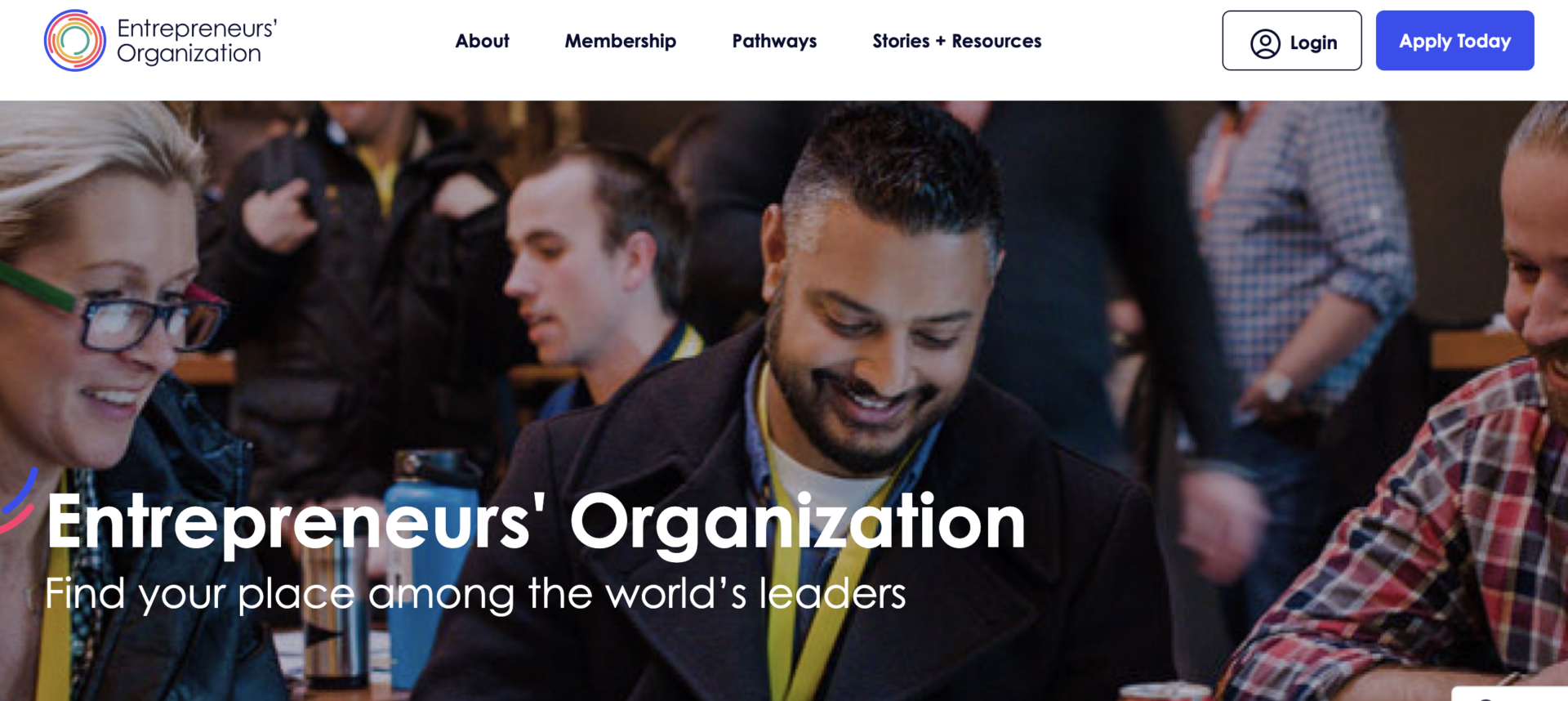
The Entrepreneurs’ Organization (EO) isn’t your average networking group—it’s a global mastermind for serious business leaders. EO is designed to connect accomplished entrepreneurs who are ready to grow, learn, and support each other. While networking naturally happens within EO, the real value lies in accessing the personal networks, insights, and experience of its members.
What Makes EO Unique?
EO functions more like an executive board or mastermind group than a traditional networking organization. Members aren’t just swapping business cards; they’re sharing deep insights, solving complex problems, and gaining access to each other’s personal and professional networks.
Membership Requirements
EO’s exclusivity starts with its strict membership criteria. Here’s what it takes to qualify:
- Qualifying Title: You must be the owner, founder, or majority stakeholder of a business.
- Qualifying Business: Your business must meet one of the following criteria:
- Standard Membership: Generated a minimum of $1 million in revenue during the most recent fiscal year.
- Venture-Backed Companies: Must have raised at least $2 million in private funding or $5 million in public funding and employ a minimum of 10 full-time staff.
- Age Requirement: Members typically join before the age of 50.
For entrepreneurs who don’t yet meet the revenue threshold, EO offers an Accelerator Program. This initiative supports businesses generating $250,000–$1 million annually, providing mentorship, resources, and a pathway to full membership.
Costs
- Initiation Fee: Approximately $2,500
- Annual Dues: $3,500–$6,000, including local chapter fees that vary by location.
While the costs are high, members often report that the value of the connections, mentorship, and opportunities far outweighs the investment.
What Members Are Saying
Supportive Community:
Members frequently describe EO as a safe space for honest conversations about the highs and lows of entrepreneurship. The confidential forums allow for candid discussions, creating an environment where members feel truly understood and supported.
Learning Opportunities:
EO is often likened to an informal MBA. Workshops, events, and structured peer discussions provide valuable lessons in business management and growth. Monthly forums dive deep into personal and professional challenges, offering clarity and actionable advice.
Global Reach:
With chapters around the world, EO connects entrepreneurs from diverse industries and cultures. Members frequently cite the global events and international connections as invaluable for broadening perspectives and fostering collaboration.
Accountability:
The group emphasizes goal-setting and follow-through, with members holding each other accountable for progress. This structure helps entrepreneurs stay focused and achieve their business objectives.
What You Might Not Like
High Membership Costs:
The financial commitment can be significant, especially for smaller businesses.
Exclusivity and Culture Fit:
EO’s emphasis on confidentiality and its high entry requirements can feel exclusive or intimidating to some. Additionally, member experiences with inclusivity vary, with some reporting challenges in male-dominated groups.
Internal Politics:
While EO aims to foster collaboration, some chapters report issues with office politics or competitive dynamics, which can detract from the experience.
Who Should Join?
EO is ideal for established entrepreneurs who are ready to engage deeply with peers, tackle tough business challenges, and leverage a global network of leaders. This is not a casual networking group—it’s a powerhouse of accountability, learning, and personal growth.
For those who don’t yet meet the full membership criteria, the Accelerator Program is a great stepping stone. Whether you’re scaling up to hit $1 million in revenue or looking to connect with other high-achievers, EO offers unparalleled opportunities for growth and collaboration.
If you’re serious about investing in yourself and your business, EO could be the transformative
4. 4Networking (UK Based)
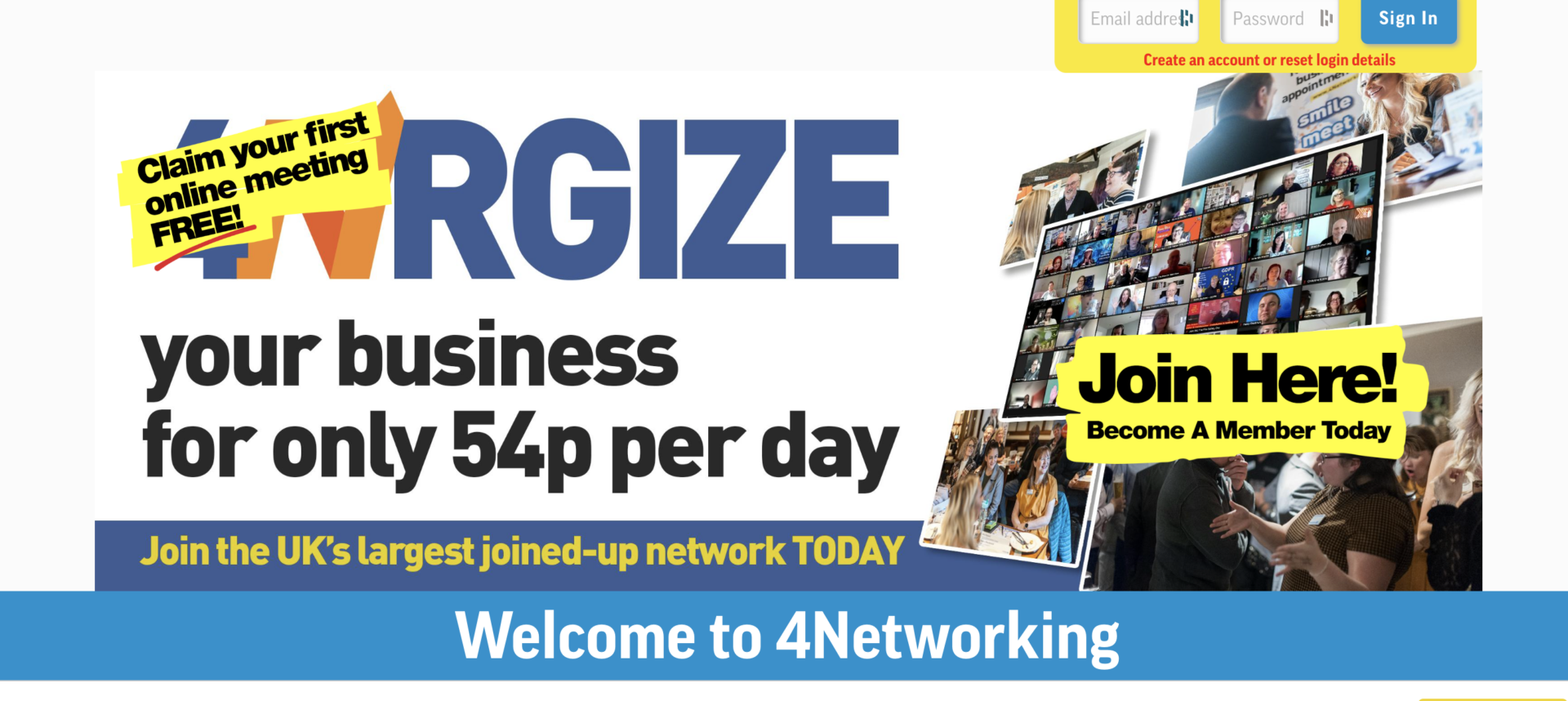
4Networking is a UK-based group with a relaxed vibe. It’s perfect if you want a mix of business and social networking without rigid weekly commitments.
Why 4Networking Is Different
It’s all about flexibility. You can attend any meeting in their network, and the events are 50% business, 50% social.
What You’ll Like
- Flexible Attendance: No need to lock yourself into a strict schedule.
- Social Atmosphere: Networking feels more like meeting friends for coffee.
- Affordable Options: Membership starts free, and you pay as you go.
What You Might Not Like
- Mainly UK-Based: Limited options if you’re outside the UK.
- Less Structure: Some people might miss the formality of groups like BNI.
What It Costs
- Membership starts free, with pay-as-you-go pricing for events.
If you’re looking for a laid-back, flexible way to network, 4Networking could be the answer.
5. Meetup.com and Eventbrite
Sometimes, the best networking happens when you’re not even trying to network. Social events are often where real connections spark, and platforms like Meetup.com and Eventbrite make finding those opportunities easier. While these aren’t traditional networking organizations, they offer countless ways to connect with professionals in social, professional, and niche settings.
You’ve probably already used Eventbrite for events both online and offline, but I bet you haven’t intentionally used these resources for networking.
But user feedback reveals a mix of experiences, so let’s break it down.
Meetup.com
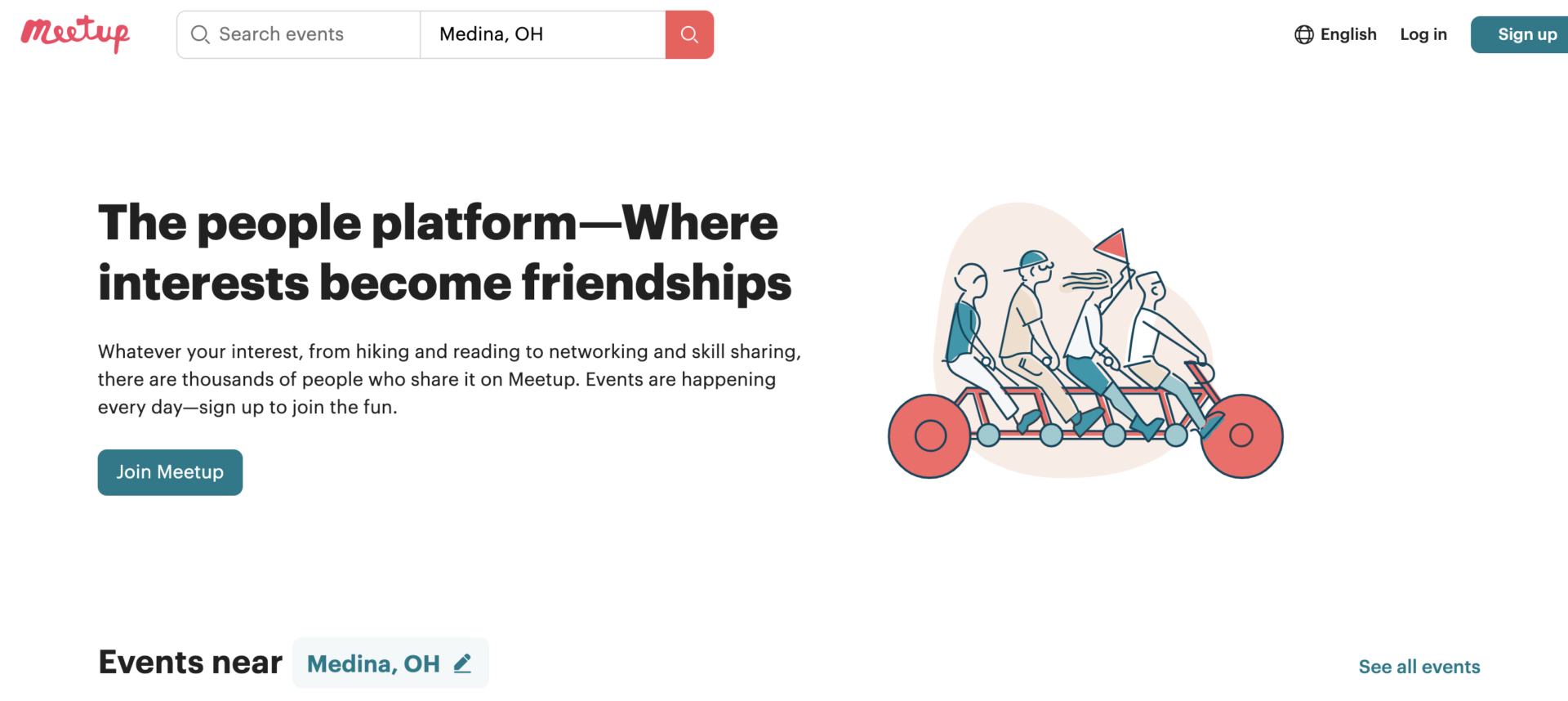
Meetup.com is all about diversity—of groups, interests, and connections. Whether you’re a tech professional looking to meet peers or an entrepreneur diving into a new hobby, there’s likely a group for you.
What People Like About Meetup:
- Diverse Groups: Meetup is a goldmine for niche networking. From tech meetups to creative writing circles, users love the wide variety of groups that cater to specific interests and industries. It’s perfect if you’re looking for a more targeted networking experience.
- Convenience: The platform’s filters for relevance, distance, and date make finding and attending events simple and hassle-free. Many users appreciate the straightforward process of discovering events tailored to their needs.
What You Might Not Like:
- Customer Service Issues: Many users have reported struggles with Meetup’s customer support. Problems with event organization or membership management can go unresolved, leading to frustration for both attendees and organizers.
- Low Ratings: Meetup’s poor reviews on various platforms (averaging 1.7 stars) reflect dissatisfaction with features, costs, and overall value.
- Cliquish Atmosphere: Some groups can feel insular, making it hard for newcomers to form meaningful connections. This is especially true in more socially oriented groups where deeper interactions don’t naturally extend beyond the event.
Meetup is a great tool for finding specific groups and niche networking opportunities, but the platform’s limitations mean it’s not for everyone.
Eventbrite
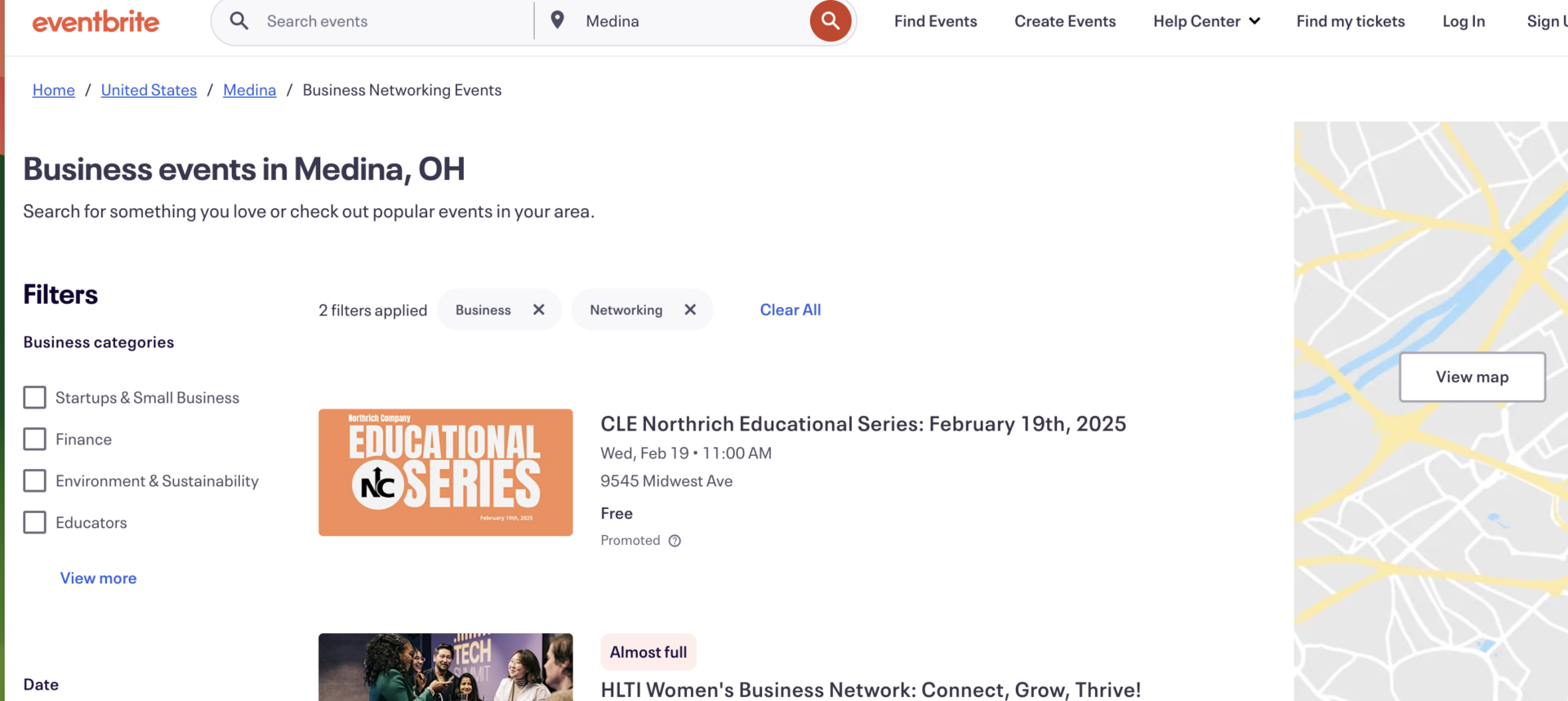
Eventbrite focuses on making events—both professional and social—easy to find and attend. Whether it’s a business seminar, a charity gala, or a casual networking event, this platform excels at bringing people together.
What People Like About Eventbrite:
- Effective Event Promotion: Event organizers love Eventbrite’s marketing tools, which make it easy to promote events via social media and email campaigns. This translates into higher attendance and more vibrant networking opportunities for attendees.
- In-Person Networking Opportunities: Users frequently highlight the value of face-to-face interactions at Eventbrite-hosted events. The platform facilitates meaningful connections in settings that encourage authentic relationship-building.
- User-Friendly Interface: Eventbrite’s intuitive design makes it simple to browse, discover, and register for events.
What You Might Not Like:
- Cost Concerns: While many events on Eventbrite are free, some require tickets, and the associated fees can be a turnoff for small businesses or budget-conscious professionals.
- Variable Event Quality: Not all events are created equal. The experience often depends on the professionalism and effort of the organizer, leading to inconsistent networking opportunities.
Eventbrite shines when it comes to promoting and hosting high-quality in-person events, but its reliance on individual organizers means that experiences can vary widely.
Who Should Use Meetup or Eventbrite?
If you’re looking for casual, low-pressure ways to meet professionals or just want to see what’s happening in your area, these platforms are worth exploring. Meetup is great for niche groups, especially if you’re looking to connect over shared interests. Eventbrite, on the other hand, excels at promoting polished, large-scale events where networking happens naturally.
But keep in mind that neither platform guarantees a flawless experience. From cliquish groups to inconsistent event quality, the value you get depends largely on the specific events and your own effort to engage. Still, for those willing to navigate the quirks, both platforms can be fantastic tools for expanding your professional network in unexpected ways.
6. The Business Referral Exchange (BRE)
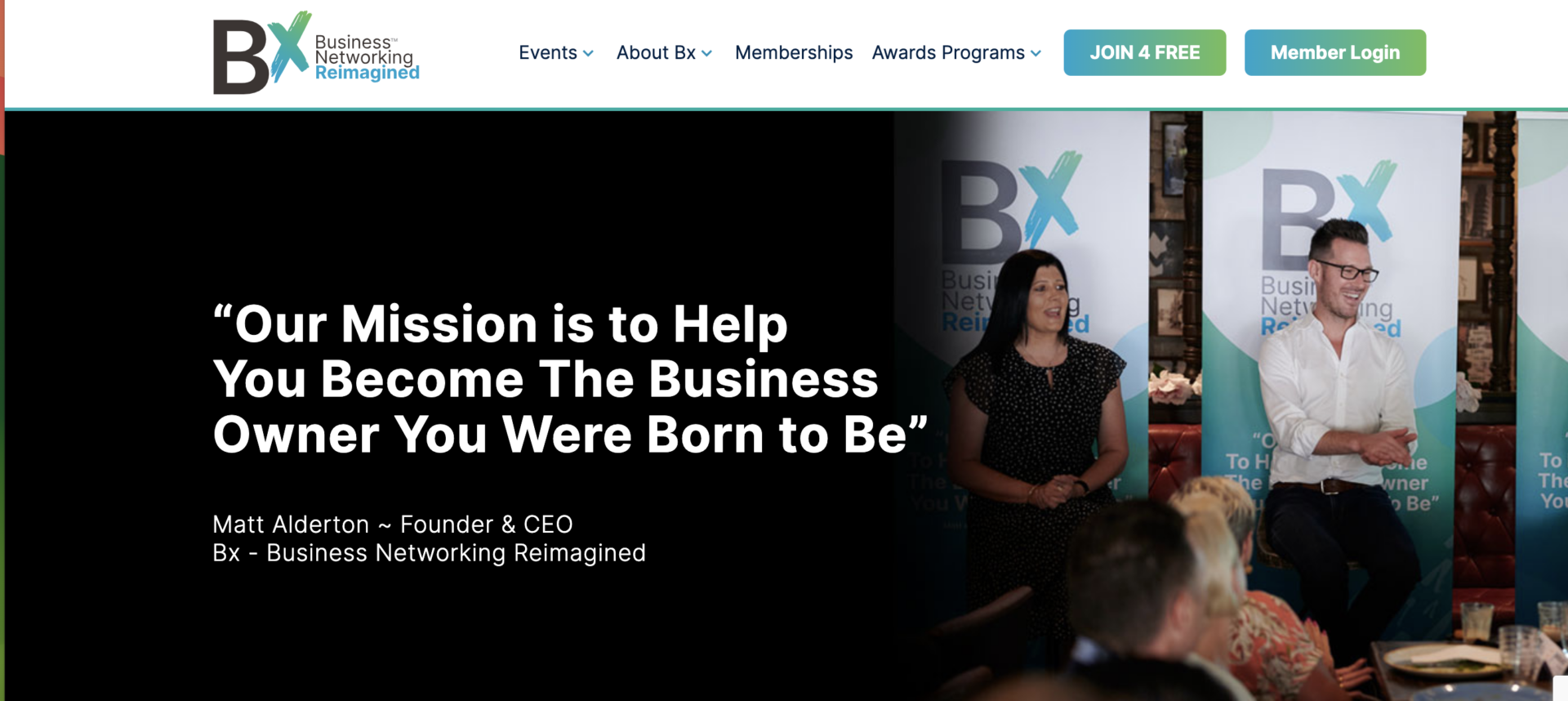
If you’re looking for something similar to BNI but with a little more wiggle room, The Business Referral Exchange (BRE) could be your perfect match. Designed for professionals who value structure but crave flexibility, BRE combines the benefits of weekly networking with the freedom to explore other groups.
What Makes BRE Unique?
Flexibility is BRE’s standout feature. Unlike BNI’s strict one-member-per-profession rule, BRE allows you to join multiple networking groups simultaneously. This means you’re not tied to just one set of connections, giving you a broader reach across various networks. For many professionals, this freedom is a game-changer.
What You’ll Like
- Flexible Membership: No exclusivity rules, so you can belong to BRE and other groups at the same time.
- Relaxed Atmosphere: Meetings are less formal than BNI’s, making it a more comfortable environment for some.
- Varied Dynamics: Each group has its own personality, which can make networking more enjoyable and dynamic.
What You Might Not Like
- Inconsistent Referral Quality: Like any networking group, the quality of referrals can vary. Some members have found great leads, while others felt the connections weren’t relevant to their business.
- Engagement-Dependent Results: The more you put into BRE, the more you get out of it. Members who aren’t actively engaged may find limited value.
What It Costs
- Membership fees vary by chapter but are generally competitive with similar networking groups.
Who Should Join?
BRE is ideal for professionals who want a structured referral network without the exclusivity or rigid requirements of BNI. If you’re the type who likes to explore multiple groups and connections, BRE offers the flexibility to do just that.
While some members rave about the relaxed environment and opportunities to diversify their networks, others caution that the results often depend on your level of participation and the dynamics of your specific chapter. Overall, BRE is a solid choice for those looking to balance structure with freedom in their networking efforts.
7. Lions Clubs International

Lions Clubs International is a global service organization with over 1.4 million members across more than 200 countries. Founded in 1917, its mission focuses on community service through initiatives addressing vision, hunger, the environment, disaster relief, and more. Their motto, “We Serve,” captures their commitment to making a difference.
How It Works
Lions Clubs operate through local chapters that tailor activities to the needs of their communities. Members engage in service projects like vision screenings for children as young as six months, funding facilities such as pavilions for schools for the blind, and collecting eyeglasses for distribution in underserved countries. While networking is a facet of Lions membership, the core purpose revolves around service rather than business connections.
Pros:
- Service-Focused: Provides opportunities to directly impact local and global communities.
- Established Reputation: Over 100 years of history with a strong global presence.
- Diverse Projects: Engages in meaningful initiatives such as health screenings, disaster relief, and environmental efforts.
Cons:
- Aging Membership: Many chapters face declining numbers, with average member ages skewing older. Recruitment of younger and more diverse members remains a significant challenge.
- Traditional Structures: Monthly meetings, often held at restaurants, and conventions with formalities like dress codes can deter younger, service-oriented prospects.
- Resistance to Change: Some clubs struggle to adapt to modern ideas, relying on outdated practices that can alienate potential members.
Pricing: Membership fees vary by club and region. Prospective members should contact their local chapter for specific information about costs and requirements.
Challenges Facing Lions Clubs
The organization faces critical issues, such as an aging membership and difficulties in attracting younger participants. A Lions club in Annapolis, for example, has seen its membership decline from over 100 to just 11 members, with an average age in the 70s. Recruitment often skews toward familiar demographics, perpetuating a cycle of limited diversity.
Younger generations also find traditional meeting structures unappealing. Many prefer no-frills service opportunities over ritualized gatherings and formal conventions. Additionally, the resistance to new ideas within some clubs has created a reputation for rigidity, making it harder to attract innovative thinkers.
Opportunities for Growth
Despite these challenges, Lions Clubs remain a powerful platform for meaningful service. The organization’s legacy, combined with its potential to adapt to modern preferences, offers opportunities for those passionate about community impact. By prioritizing flexibility, inclusivity, and innovative service projects, Lions Clubs can evolve to meet the needs of a new generation of volunteers.
If you’re looking for a service organization that values action and impact, Lions Clubs International provides an avenue to make a tangible difference in your community and beyond.
FAQs
How do I choose the right group for my business?
Think about your goals. Do you want exclusivity? LeTip is a strong choice. Looking to connect locally and become involved in community leadership? The Chamber of Commerce is great. Need global reach? EO is your match.
Are these groups worth the investment?
Absolutely—if you show up and engage. Networking groups are all about what you put into them.
Can I join multiple groups?
Yes! Many business owners diversify their networks by joining several groups. Just make sure you have the time to participate actively.
What should I prepare before joining a networking group?
Have a polished pitch, a clear understanding of your ideal customer, and a willingness to contribute. You’ll stand out immediately.
Are there online-only options?
Yes, platforms like LinkedIn Groups and Meetup often host virtual events, perfect for those who prefer to network from home.
The Bottom Line
BNI might be the networking giant, but it’s far from your only option. Whether you’re drawn to exclusivity, flexibility, or global connections, there’s a group out there waiting for you. Remember, the magic happens when you show up, stay consistent, and put in the effort to build real relationships.
So, which group will you try next? The connections you make today could transform your business tomorrow.